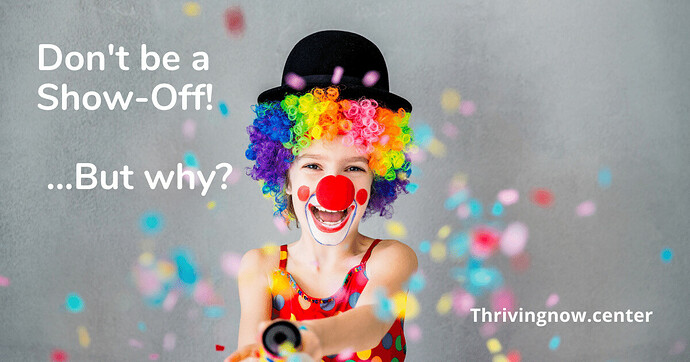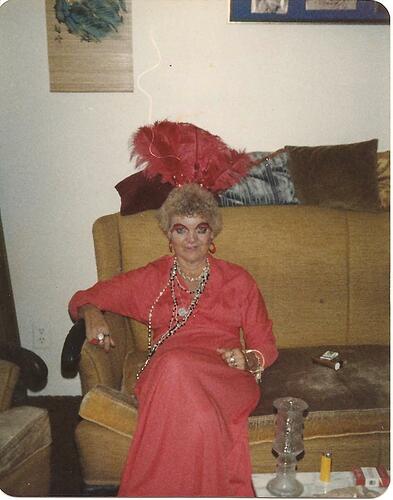There’s a show-off in me. He’s about the age of the child in this picture. And right about then, he was smushed by adults who didn’t like him doing that.
Show-off (n.) a person who acts pretentiously or who publicly parades themselves, their possessions, or their accomplishments.
Dang. Think about what matters to a kid or teen. Learning a new skill. Building something they like. Even earning something they value. If they choose to “parade” themselves, they are labelled and shamed.
I’m actually getting angry. (Tap tap tap)
Popular psychology reinforces this…
Why do people show off?
Insecurity. It’s the most common reason behind showiness. A person shows off only when they need to. Only when they think that others don’t consider them important will they try to prove that they’re important.
Do we have a NEED to be seen?
I do. Do you?
On the circle session we had recently, this came up. I said that when someone is being labelled a show-off (and shamed into not being), there are unmet needs.
What angers me is that we’re conflating healthy needs like the need to be seen and the need to matter (be important) with the strategies used to get those needs met.
To share openly… to celebrate… to be seen and delighted in… these are good and healthy human needs.
I can’t tell you how many clients I’ve tapped with who have intense resistance to “being proud” of an accomplishment… so many have carefully avoided accomplishments! Or kept them buried so deep they compost.
Emotional Freedom I assert means that we are aware of and accept our human needs – which for some include more of match for external attention (extroverts anyone?) than others. Rather than shame and suppress (old school!) I imagine a world where we help such beings know the when and where – the we-spaces – that are designed (or can be co-created) to meet those needs.
Most needs when suppressed ooze or squirt out in behaviors that cause issues. I’d like to hope that we’re exploring ways even with our most rambunctious children (and selves) to find ways to experience the nourishment of getting the attention and connection we crave.
@Rick
P.S. But… Why? Why avoid showing off? There’s a lot of status-warning in the definition of show-off. If we “advertise” our status, there are places and spaces where that is dangerous and can be interpreted as a primal threat that you better be prepared to back up, Alpha Monkey! I get that.
We do need to know whether the We-Space is designed so we can safely and respectfully celebrate who we are and what we have that matters to us. If it isn’t – and many spaces (like every middle school?) are not like that. We have work to do.


 if on video).
if on video).